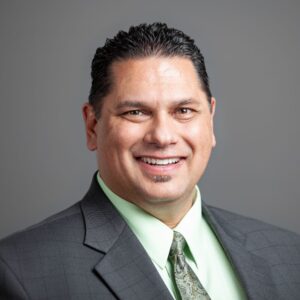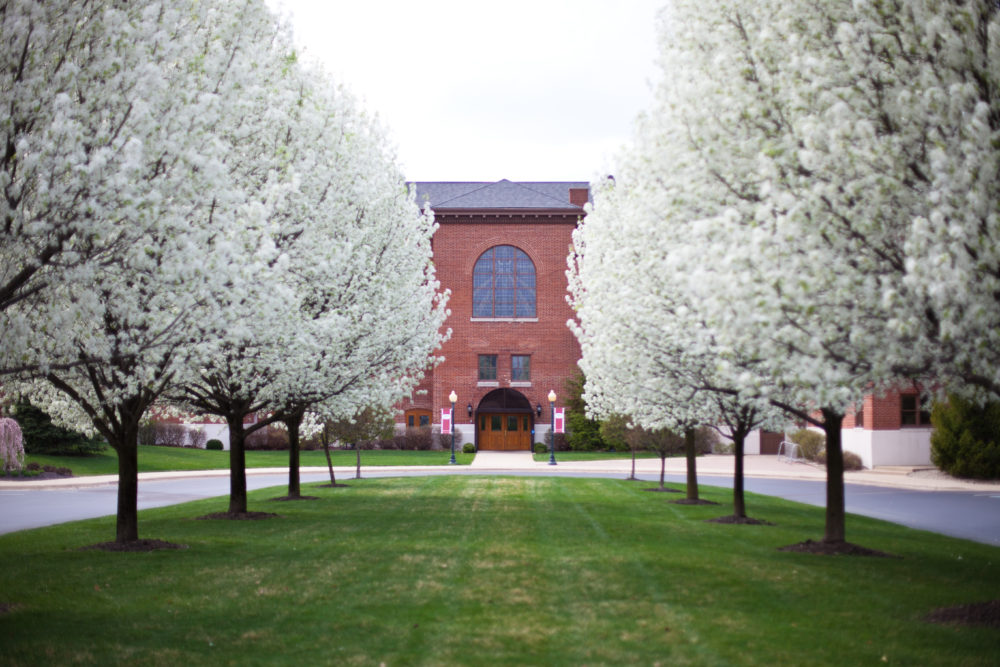April 7, 2021
Christian Leadership: Deacons as Spiritual Shepherds
Written By Grace Theological Seminary
The Shepherding Dynamic of Deacon Leadership
The essence of Christian leadership is shepherding. Shepherding provides the perfect balance of the two irreducible aspects of ministry: serving and leading. Though serving and leading seem paradoxical due to misconceptions about the true nature of Christian leadership, these are the primary themes we see throughout the Word of God. For this reason, it is easy to see why the biblical theme of shepherding best models the concept of “servant leadership.”
Shepherding in Scripture
Christian leadership by shepherding is seen throughout Scripture. It is a powerful biblical motif found both literally and figuratively during the time of the Old Covenant (Isa. 63:11; Num. 27:16-17; Ps. 23; Ps. 78:70-72). Old Testament shepherd leadership is best captured in the lives of Abraham, Moses, and T David, however imperfect they may have been.
The shepherd leader concept finds its apex in the New Testament. The Lord Jesus Christ, though by trade a carpenter, modeled the epitome of being a shepherd. He did this by giving His life for the sheep. In addition, Jesus taught explicitly on shepherding in John 10:11-18. In that passage, Jesus refers to Himself as the “good shepherd” on two separate occasions (John 10:11,14). The writer of Hebrews echoed and elevated his designation, calling Jesus the “great Shepherd” (Heb. 13:20). Similarly, the apostle Peter called Christ both the “chief Shepherd” (1 Pet. 5:4) and the “Shepherd” of your souls (1 Pet. 2:25).
Shepherd Leadership in the “Offices” of the Church
The word of god is replete with the theme of shepherd leadership. It is important to recognize that the Bible speaks of local church leadership as being distributed in two separate positions or offices (Phil. 1:1). As such, Christian leadership in churches is expressed in the shepherding roles of both pastors and deacons. But the nature of the two offices is not identical. While both pastors and deacons lead the church, there are fundamental differences between their functions. Pastors have the primary role of shepherd teachers with an emphasis on prayer and equipping the saints for ministry (Acts 6:2; Eph. 4:11-12; 1 Pet. 5:1-4). Deacons have the primary role of shepherd ministers with an emphasis on service and administration (Acts 6:1-3; 1 Tim. 3:8-13).
Though the two words are very close in concept, one might say that pastors are lead ministers while deacons are ministry leaders — those who administer. The etymology of the word administer means “to help, aid, or be of service to,” and it implies the act of managing and executing ministry to others. Deacons should seek to help, aid, and be of service to pastors (lead ministers) by functioning as ministry leaders who meet the needs of the church.
Characteristics of Shepherding Deacons
In Acts 6, luke provides a glimpse into the types of activities in which New Testament deacons participated. Note that these responsibilities were spoken of in contrast to the pastoral responsibilities of the apostles (Acts 6:2,7). The passage describes a crisis which arose due to the explosive growth of the church in Jerusalem. Pressing apostolic preaching and teaching responsibilities had taken priority because of the great evangelistic and discipleship needs in
the city. As a result, other important ministries had become unwittingly neglected (Acts 6:1). Specifically, the church’s responsibility to care for certain Christian widows had been overlooked.
While the needs of the Hebrew-speaking (Hebraic) Jewish widows were being met, Greek-speaking (Hellenistic) Jewish widows in the church were not receiving adequate supplies of food and other resources. These complaints were heard and came to the attention of the apostles. They acknowledged the legitimacy of the situation and called a meeting which resulted in the naming of several men who were charged to meet the needs of the Hellenistic widows. The unity of the church and the rapid growth of the gospel both hung in the balance (Acts 6:7).
Strong Character and a Good Reputation
Several key principles of shepherding can be identified from the actions of the men called to serve. First and foremost, these were men in possession of strong character and a good reputation (Acts 6:3). Not surprisingly, these are part of the requirements for deacons given in 1 Timothy 3:8,13. Note that character and reputation are not the same thing. Character is who a person actually is. Reputation is who others think a person is. The men chosen to address the challenges with the neglected widows had good reputations, which is to say that they were believed to be men of God. They also had strong character because, once called upon, they followed through and accomplished the task at hand (Acts 6:6-7).
Maturity and Responsibility
Shepherding deacons are also those of maturity and responsibility. The apostles called upon the people to choose men such as these (Acts 6:3). It was a prerequisite for Christian leadership. The Twelve knew that the duties that had fallen on them as apostles could not be flippantly handed off to immature and irresponsible men. Like those above, these essential qualities are also mentioned by the apostle Paul in his list of requirements for deacons. In his epistle to Timothy, he insists on calling only men of dignity who have been clear examples of tested spiritual maturity (1 Tim. 3:8-10). It was absolutely imperative for the men chosen to assist in the plight of Hellenistic widows to exhibit these characteristics. The church emergency called for seasoned discernment, prudence, and judgment that a spiritual novice would simply not possess.
Conviction and Courage
The men called to shepherd the situation in Jerusalem also had to have strong conviction and courage.
The conflict was real and the issues were controversial. Though the widows in question were all Christians with a Jewish ethnicity, the two groups came from different cultures. The conservative
Jewish widows who spoke the native Hebrew language and who came from traditional Jewish perspectives had needs that were already being met. The socially progressive Hellenistic widows who shared a common cultural heritage with the occupying Roman culture and who spoke the Greek language had needs that were not being met. This raised the possibility of apostolic neglect, which could have been construed as prejudicial treatment. In addition, each of
the seven men chosen came from a Hellenistic background themselves. They had Greek names and at least one was a Gentile who had converted to Judaism and then Christianity (Acts 6:5). For this reason, great personal courage to meet the challenges were necessary, and only men possessing the boldness biblically required of deacons would do (1 Tim. 3:13).
Challenge
Like the perilous times facing the church of the first century, congregations continue to face challenging situations. In the same way the apostles in Jerusalem relied on the shepherding qualities of deacon leaders then, churches and pastors rely on deacons now. Commit yourself,
and challenge fellow deacons to devote themselves to these biblical standards of Christian leadership.
At Grace College, we highly value the local church — from the congregation, to deacons and elders and pastors. We believe the local church should be the wellspring of Christian leadership. That is why we offer our local church ministry degree in a variety of delivery methods. We think everyone who cares deeply about growing and maturing the body of Christ through local churches should pursue this degree.
Learn more about our various church ministry degree options offered both residential and on-site at your church:
Freddy Cardoza
Freddy Cardoza, is the Dean of the School of Ministry Studies at Grace College and Vice President of Grace Theological Seminary. Freddy oversees the faithful execution of the mission and vision for the School of Ministry Studies. He is committed to advancing the Kingdom of God by expanding the size, reach, and impact of the school, faculty, staff, and the dynamic programs they offer. Freddy also serves as Professor of Christian Ministry and Leadership. In this capacity, he equips Christian leaders for ministry impact, and trains disciples to wield the Word of God and the power of God, for the glory of God.
Dr. Cardoza’s most recent scholarship includes the primary textbook entitled Christian Education: A Guide to the Foundations of Ministry (2019, Baker Academic).
Share
Tagged With Preaching & Pastoring Master of Divinity Master of Arts Dr. Freddy Cardoza




